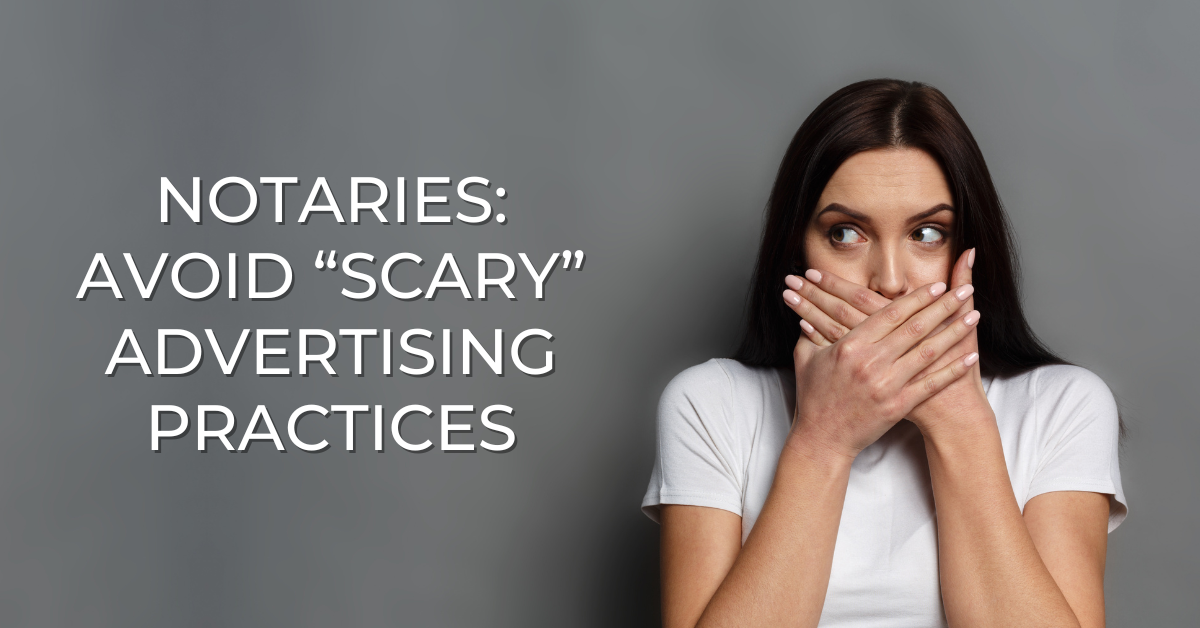Notary Public Underwriters Blog
Notaries: Avoid “Scary” Advertising Practices
- Details
- Published: October 17, 2023

It’s October – the month of goblins, ghouls, ghosts and generally anything “scary” as we roll along toward the big finale, Halloween!
The horror movies that make us scream every October have a reliable formula: begin with situation-normal, drop some ominous signs of “something brewing,” then barrel full-steam into dread-filled chaos. The “something brewing” phase often gives the protagonist chances to grasp the approaching doom BUT… they JUST. DON’T. GET IT.
All you notaries who advertise your services… you can proactively sidestep your own “path to doom”! Avoid the sanctions and penalties of improper advertising and fee-charging, by:
- Regularly reviewing and verifying the maximum fees your state allows you to charge for notarial acts, and not exceeding them.
- Clearly line-iteming all fees in any advertising, website or social media listing you have, and grouping statutory fees for notarial acts separately from elective, business-related fees for expenses like mileage to travel to-and-from a notarization.
- Once with the customer and before providing any services, giving the customer your itemized list of fees and verifying one final time that they understand and are willing to pay your fee(s).
- Providing your customer an itemized receipt for all fees charged, with fees for notarial acts grouped separately from any other fees.
- Keeping accurate and timely records of all fees you collect by promptly entering them in your corresponding recordbook (journal) entry.
Monitor your commissioning state’s laws, rules and guidelines to be sure that any practice you adopt relating to advertising and fee-charging does not conflict.
U.S. notaries have one more BIG (scary) advertising issue that can lead them into trouble. NEVER translate the term “notary public” into any language other than English, for any purpose. Don’t translate this term verbally, or in writing. A direct translation of “notary public” into any non-English language can mislead customers from other countries to believe you, as a U.S. notary, also have the broader powers of notaries in other countries. Penalties for representing oneself as a “notario publico” or similar are serious, so don’t forget this important rule.
Follow all practices that keep yourself and your notary commission safe, not just during this “scary” month but year-round!
Related Article(s)
Declining a Notarization: A Guide to Handling a Delicate Situation With Professionalism
What Do I Do With My Record Book (Journal) Entry When a Notarization Is Cancelled (Not Completed)?
How to Handle Out-Of-State Documents
Tips to Protect Your Notary Stamp and Journal
What to Do When the Notary Certificate Is Missing?
